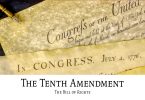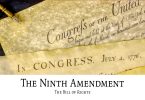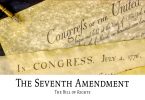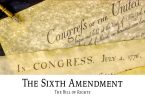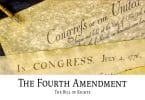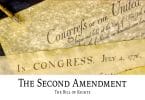The fifth amendment in the Bill of Rights has a lot to say about one’s legal rights in a court of law, and about being subjected to a trial in a court of law, in general. The Founding Fathers were particularly concerned about protecting the legal rights of individual people because these had so often not been protected in the past when the colonies were under the jurisdiction of the crown of England. While not ruling out tough legal sanctions for those found guilty, the Founding Fathers wanted to make sure everyone accused of a crime was afforded every opportunity to prove their innocence before any action was taken against them. Thus, the fifth amendment was born.
The Fifth Amendment
No person shall be held to answer for a capital, or otherwise infamous crime, unless on a presentment or indictment of a Grand Jury, except in cases arising in the land or naval forces, or in the Militia, when in actual service in time of War or public danger; nor shall any person be subject for the same offence to be twice put in jeopardy of life or limb; nor shall be compelled in any criminal case to be a witness against himself, nor be deprived of life, liberty, or property, without due process of law, nor shall private property be taken for public use, without just compensation.
What Does it Mean?
If you are being accused of a particularly terrible crime, one that might cost you life, limb, liberty, or property of a significant amount if you are convicted, you may not go to trial for that crime without the benefit of a Grand Jury first determining that there is enough evidence to bring you to trial. This prevents frivolous prosecutions and even prosecutions for revenge against someone who the prosecutor does not like for a personal reason. The Grand Jury is impartial and makes the decision on whether or not you go to trial on their own, without outside input.
The only exception to this is if the crime is committed by a person in the military or a local militia during times of war or great civil peril to the country. In these cases, military courts will handle the matter. In times of peace, military and militia members are still afforded the benefit of a Grand Jury, like anyone else.
You can’t be tried twice for the same crime. This means you can’t be found innocent and freed, only to be brought back later and tried for the same crime again, even if there is new evidence against you. Hung juries and appeals are exempt from this rule.
You can’t be made to testify against yourself. This is your right against self-incrimination. When someone “pleads the Fifth” in a trial, they are invoking this Constitutional right against self-incrimination.
If you do go to trial, your trial must be conducted strictly according to the law. If there are things about the trial that are found to be outside the scope of the law, the trial can be invalidated, and a new one ordered.
Finally, your private property cannot be taken by the government to use for government projects without the government properly financially compensating you for that property. This is the Eminent Domain law.
All of the rights ascribed to people who are facing a trial in a court of law in this amendment are things that people were not afforded in England at that time. The Founding Fathers really wanted to make sure that basic human rights were defended.

